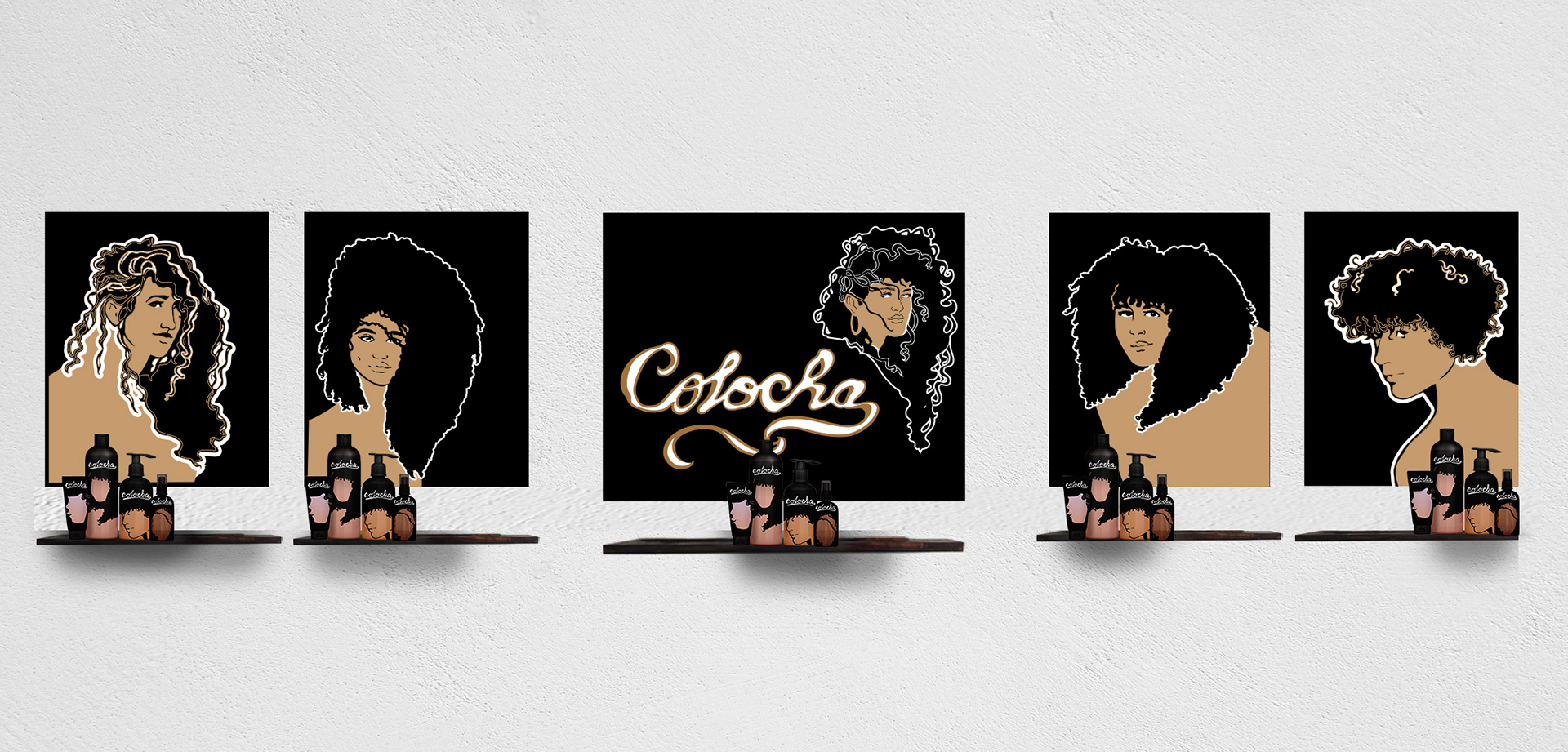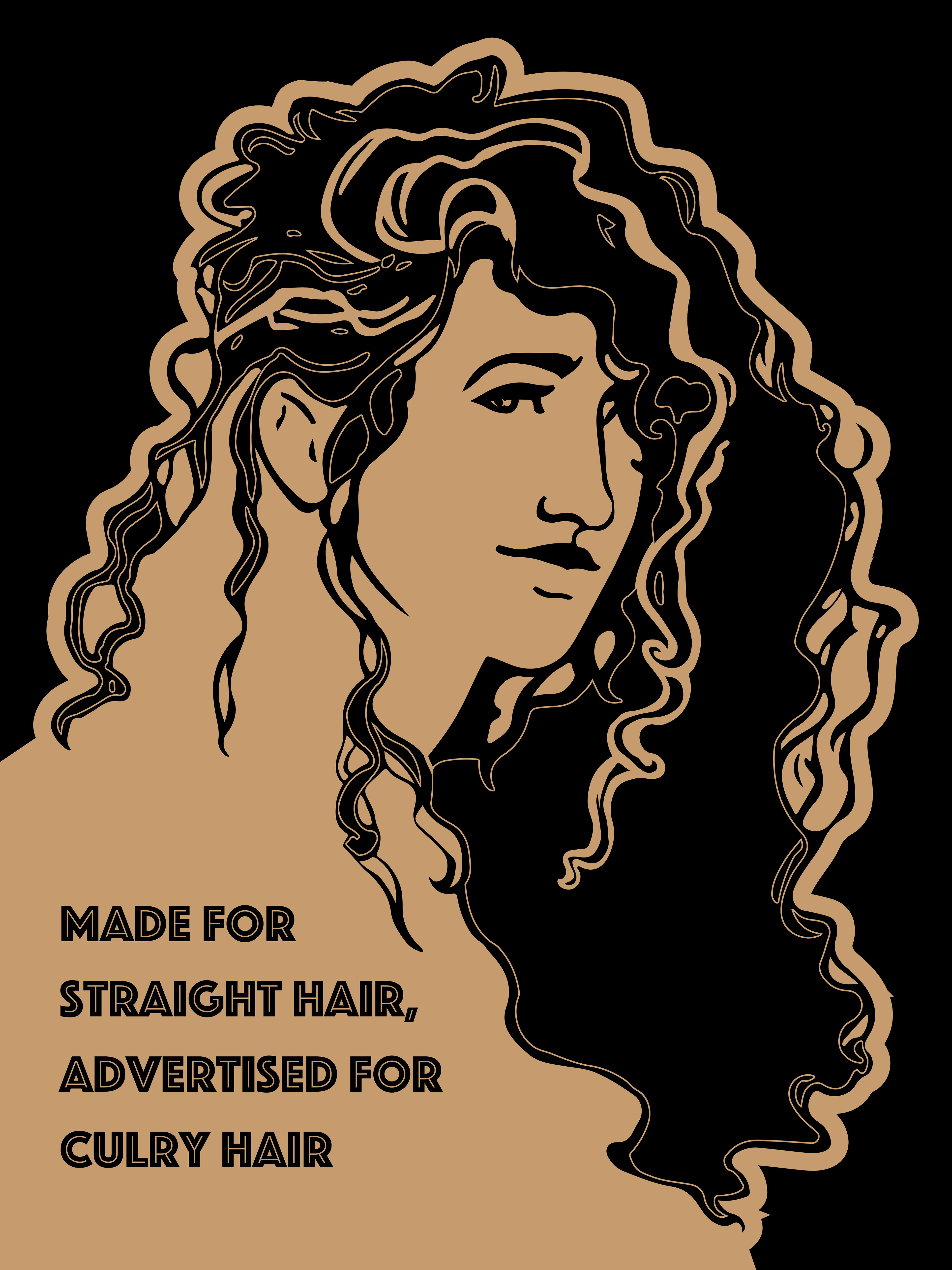
Poster Process 1
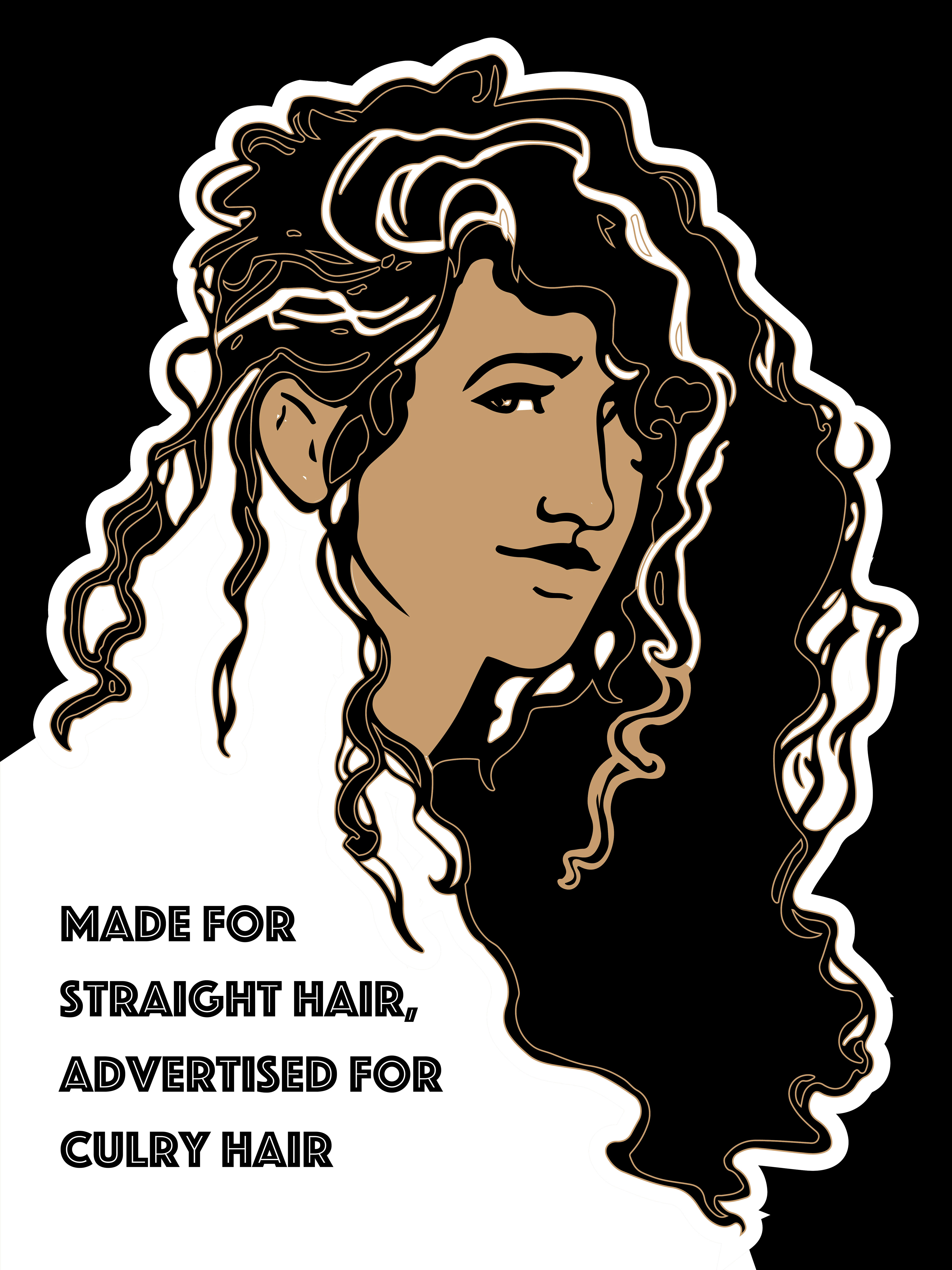
Poster Process 2
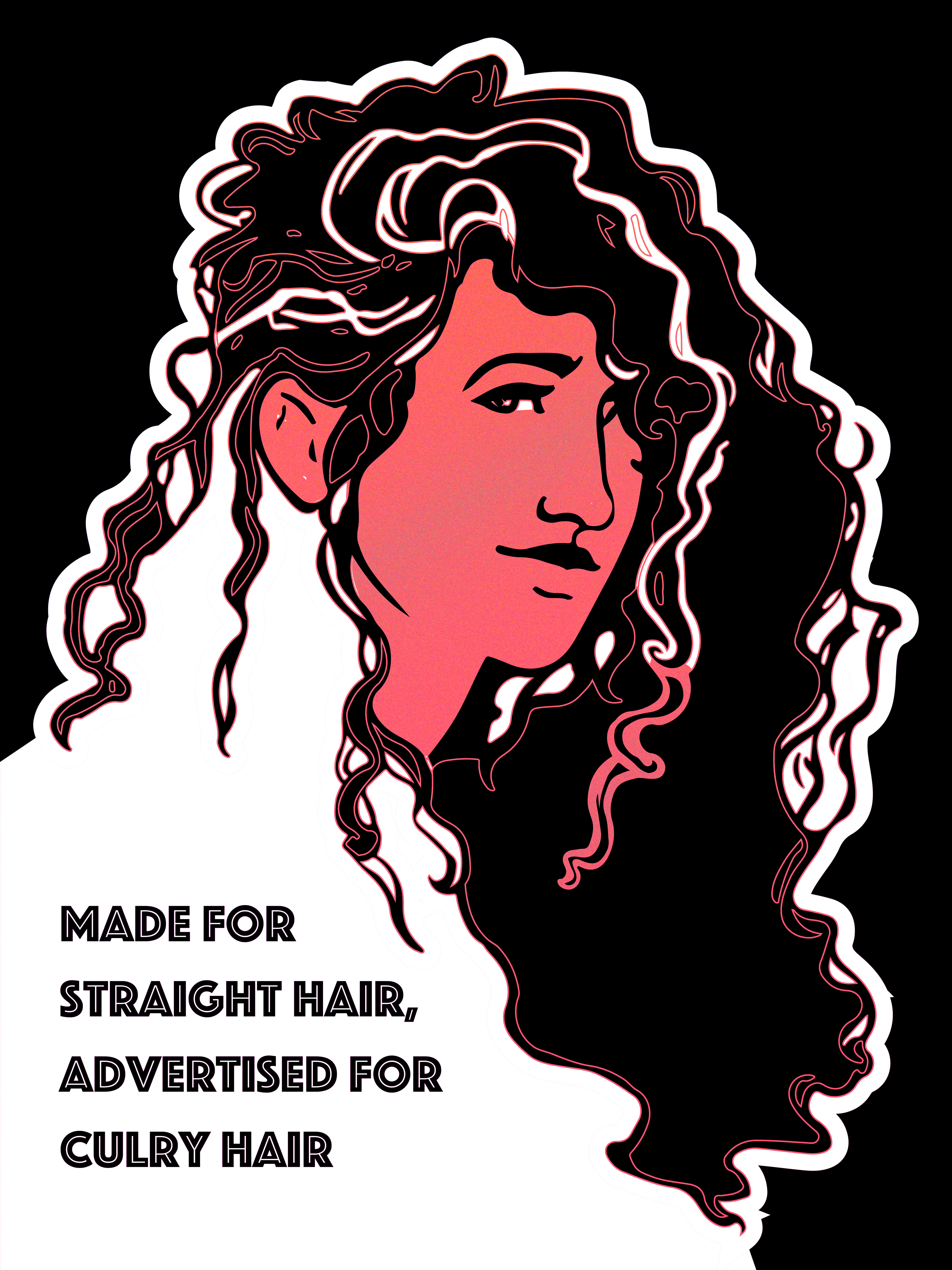
Poster Process 3
I continued to push the concept of the Colocha Curl Care Products project into a BFA Thesis Exhibition. I used the end of the previous project as a basis for the exhibition, however I focused more on issues within the retail hair industry, such as visibility, attainability, ingredients, and social acceptance.
Colocha is a narrative critique on the current climate of natural hair products in the beauty industry and provides insight on the lack of diversity. Colocha features a series of posters with narrative typography addressing specific issues of false advertisement of ingredients, and using curly hair as a way to falsely promote diversity without research. Colocha also introduces a hypothetical brand of curly hair products satirically critiquing current representation of natural hair in retail environment and creates an ideal product for its intended natural hair audience. The exhibition serves as an educational experience for those who are unaware of this issue and to promote the importance of diversity and visibility.
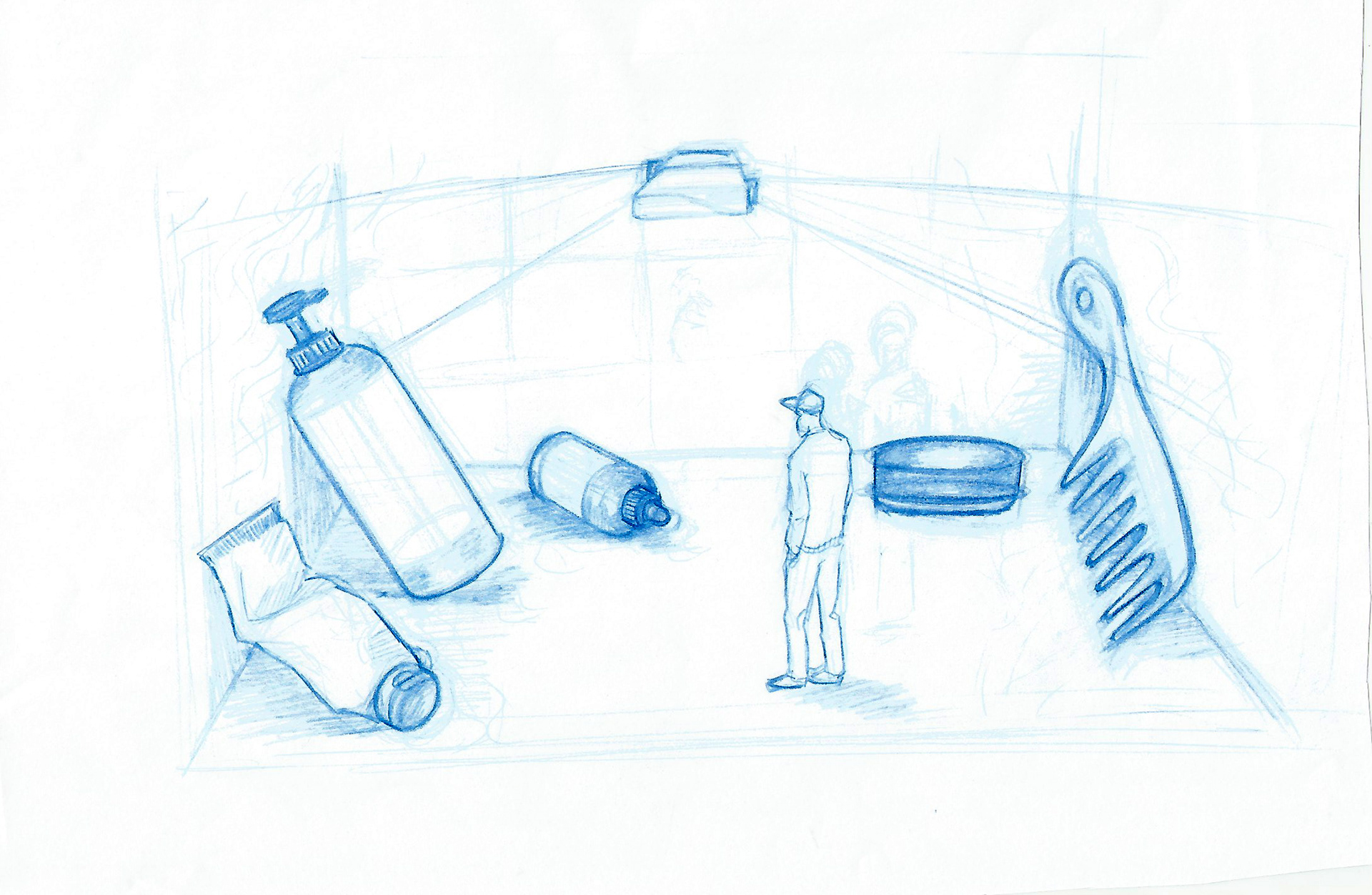
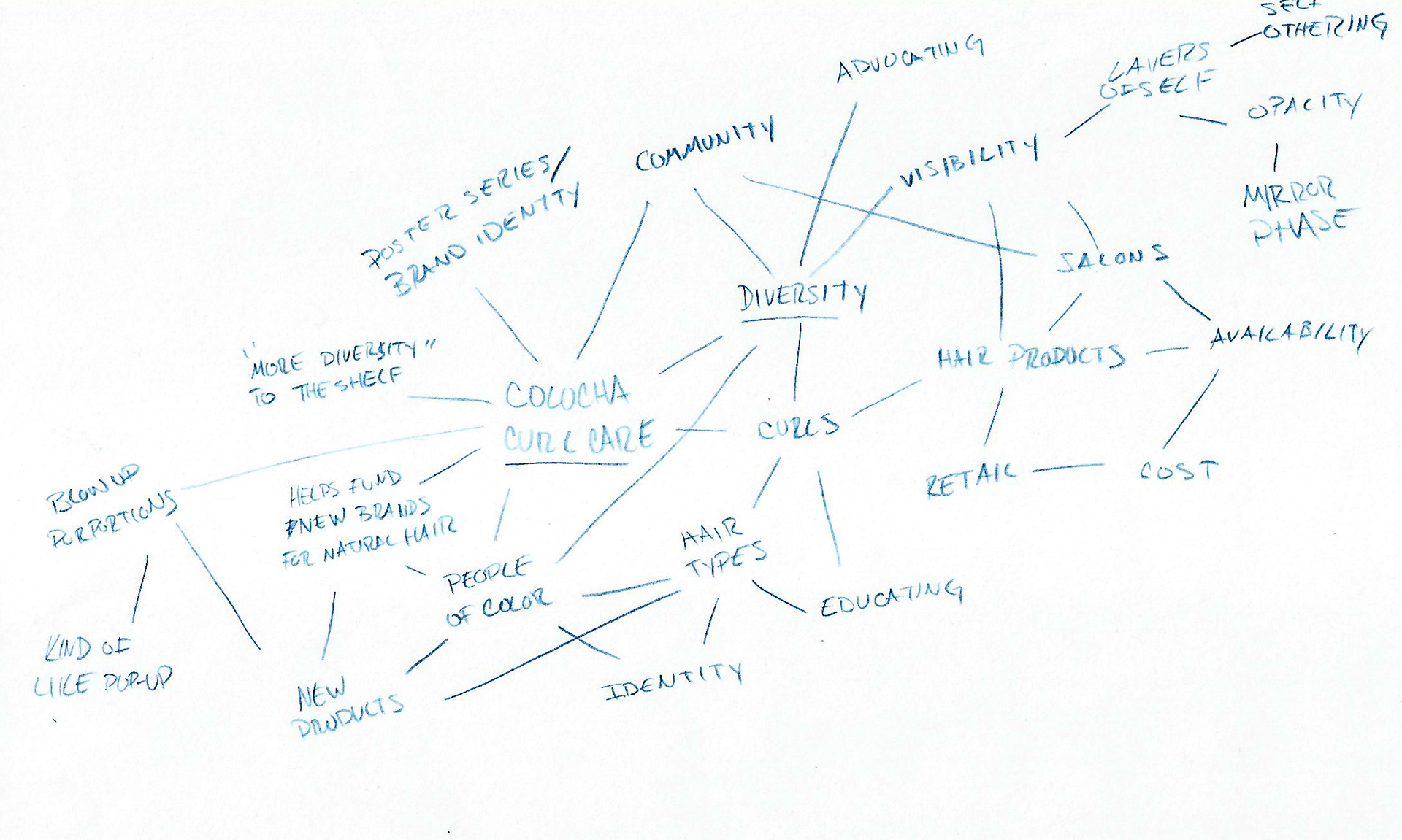
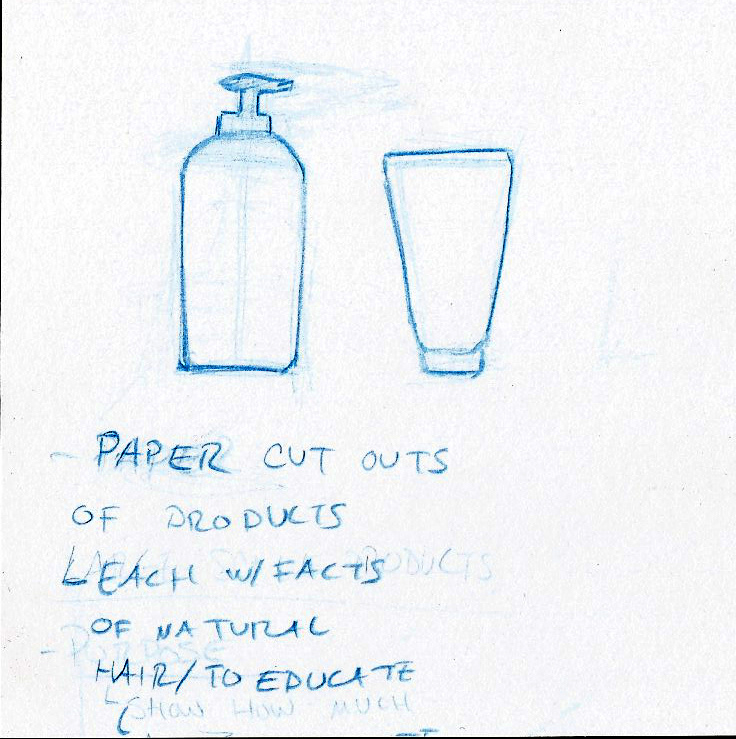
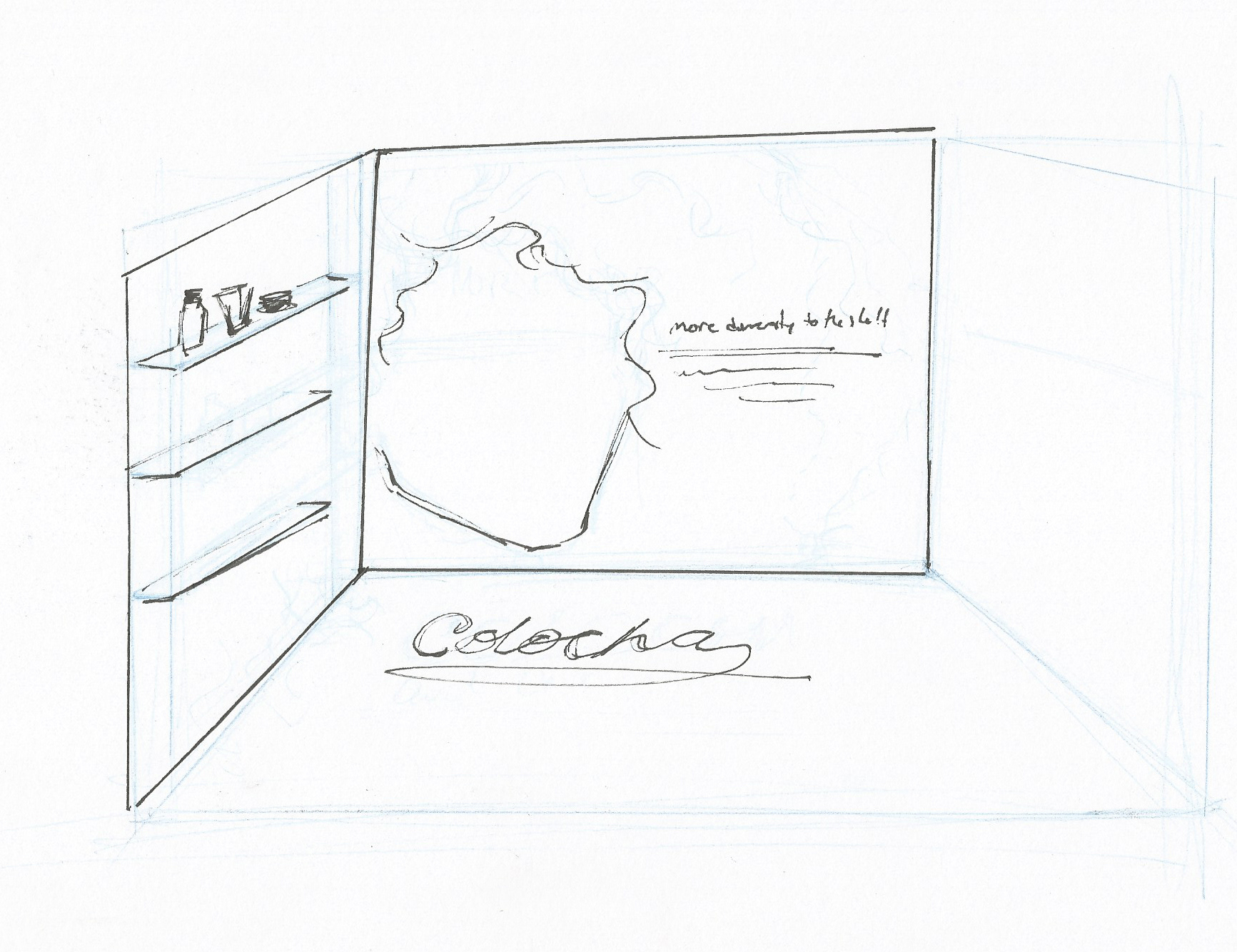
Designing for a 3D Space Given the opportunity to transform my messaging into an interactive experience allowed me to practice various problem solving skills. Initially I was thinking of creating something more of “pop up shop” or small mock booth satirically discussing the damaging impacts of ill-informed hair companies promoting unrealistic hair expectations. As I explored the retail space further, I was then thinking of recreating a retail space still holding the messaging as mentioned earlier, but in a more subdued manner. The final mock ups and renderings now reflect a more educational environment that displays the posters and packaging in a way that promotes the messaging of inclusion within the hair industry and reviews over specific case studies that the public could learn from
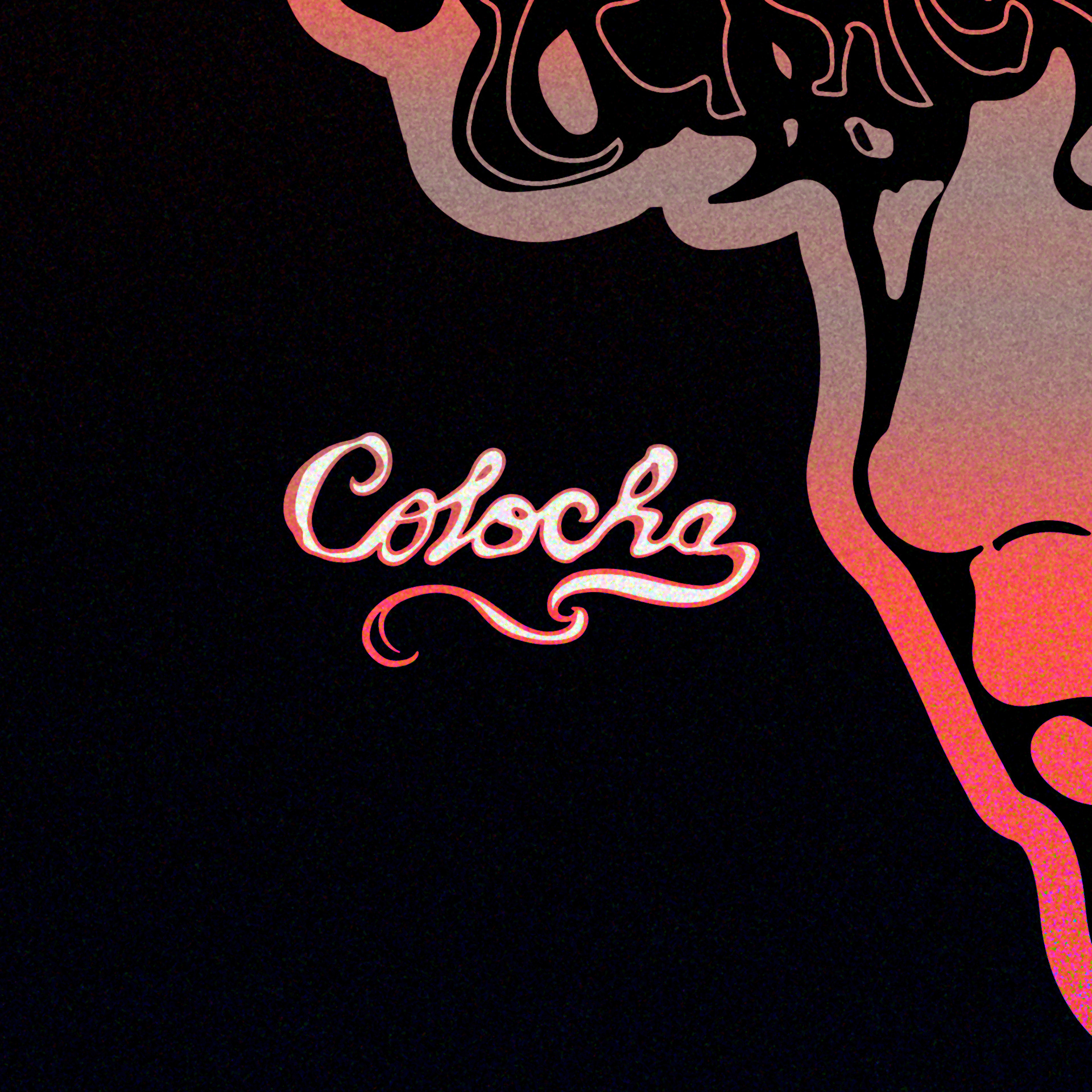
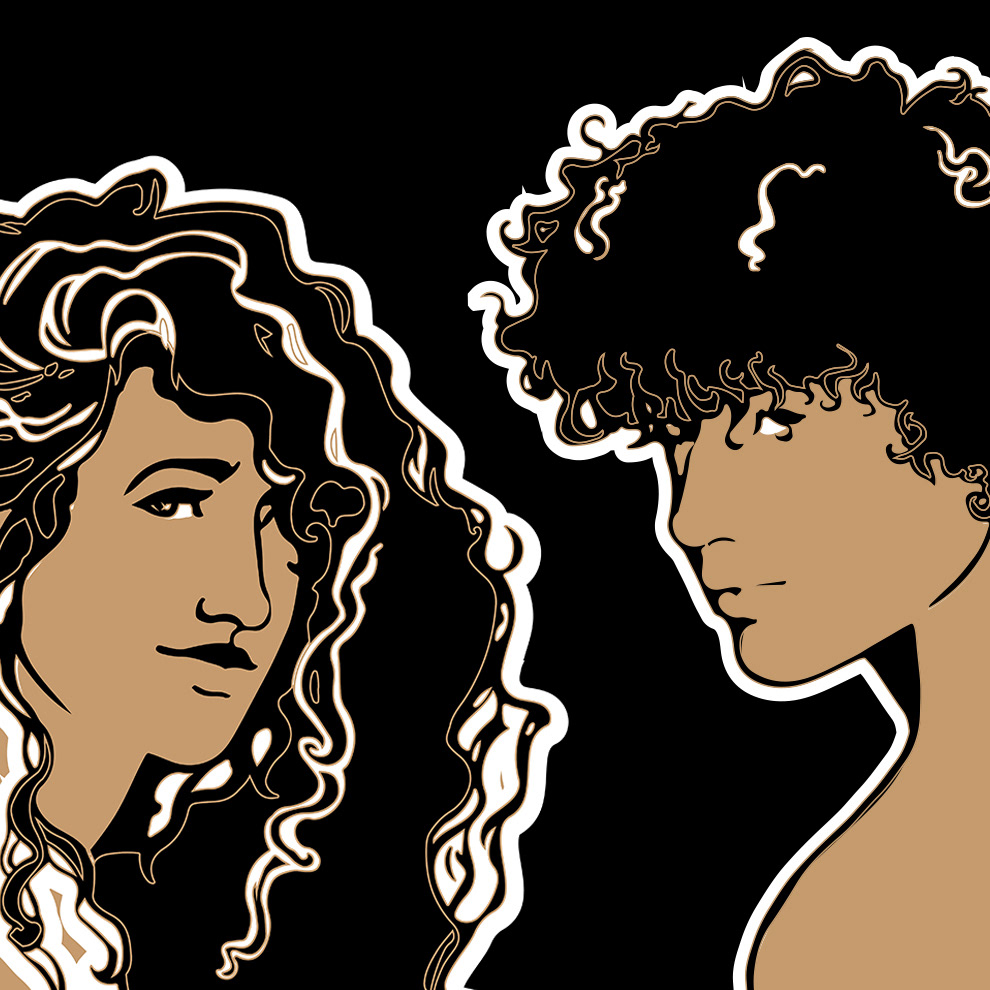
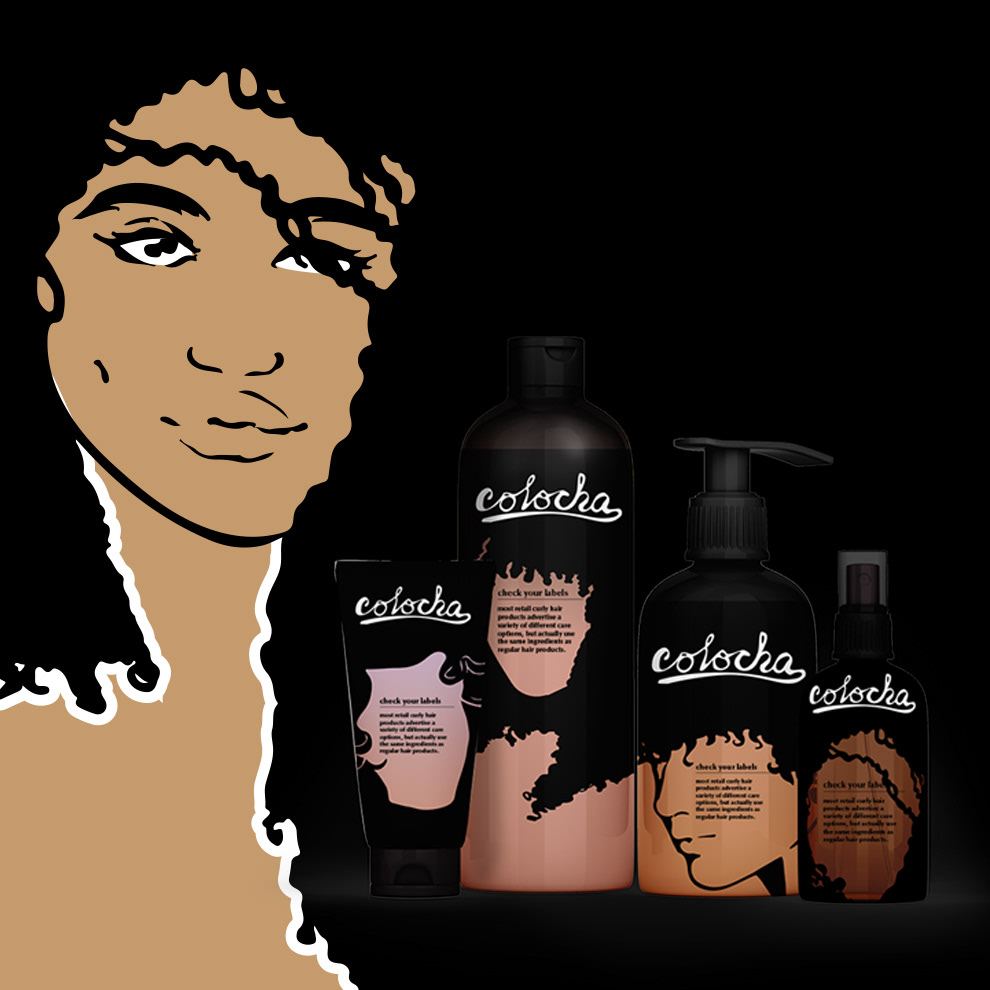
Messaging bell hooks discusses in The Oppositional Gaze how the black female spectator perceives themselves through their representation on film.¹ Colocha focuses on the idea hooks introduces of not seeing yourself until you see how others perceive you. The retail environment holds a strong reflection of society through its very nature of providing basic needs. With the large mix of individuals in the country it is quite shocking that within the hair retail environment, there is limited representation for people of color. This lack of visibility quickly becomes an issue in terms of how we understand the world around us. Without seeing the full perspective, society can develop a warped idea of what is normal or acceptable. Maurice Merleau-Ponty discusses this importance of seeing the world from all sides in order to have a better understanding of how you fit within it throughout his essay Phenomenology and Perception². I am interested in showcasing this alternative perspective to advocate for a deeper understanding of what inclusion means. Many people say that they want diversity, yet they do not realize how their ideas of inclusion and or practice of diversity is actually internalized by those they are trying to include. I aim to educate the public on this alternative perspective of hair culture, to identify the underlying problem with current diversity trends and to advocate for a deeper understanding of inclusion. Through the narrative posters of Colocha, I invite the audience to question the realities of diversity and challenge their assumptions of social norms. With the branded products presented, I welcome possible educational solutions through advocating for deeper understanding of inclusion. ¹ hooks, bell. “The Oppositional Gaze: Black Female Spectators,” in Black Looks: Race and Representation. South End Press: Boston, 1992, pp. 115-131. ² Merleau-Ponty, Maurice. Phenomenology and Perception. Trans. Colin Smith. 2nd ed. New York: Routledge, 2005
